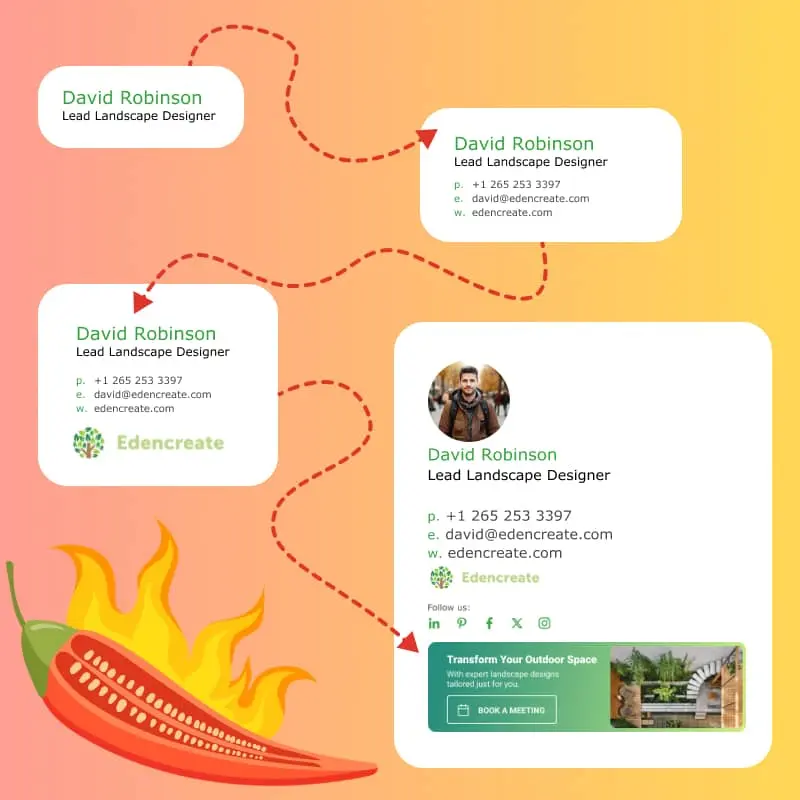
October 10, 2023
The Evolution of Email Signatures in the Digital Age
The evolution of email signatures mirrors the broader shifts in digital communication and branding. Once simple text, they have become sophisticated tools of branding and professional identity. This article explores the journey of email signatures, highlighting their importance in professional communication.
The Early Days of Email Signatures
Initially, email signatures were basic, often manual text entries at the end of emails, including just the sender's name and contact information. Their simplicity reflected the early internet's limitations and email's novelty as a communication medium.
Rise of Personalization and Branding
As email gained traction in professional settings, distinctive branding became essential. The late 1990s and early 2000s saw the inclusion of company logos, branded fonts, and color schemes, turning signatures into mini advertisements.Integration of Hyperlinks and Social Media
The integration of website URLs, social media profile links, and even embedded maps marked a new era. Email signatures evolved into hubs for digital networking and professional online presence extensions.Mobile Optimization and Responsive Design
The rise in mobile usage shifted focus towards mobile-friendly, responsive email signatures. The emphasis was on readability and functionality across devices.Legal Disclaimers and Compliance
Email signatures began to include legal disclaimers and compliance statements, especially in regulated sectors like finance, law, and healthcare.Interactive and Dynamic Elements
Today, email signatures are dynamic, with interactive elements like animated banners and QR codes, tailored to individual roles within an organization.The Future of Email Signatures
In the future, email signatures will likely embrace minimalism, with a focus on key elements like a headshot and company name, complemented by a link to a comprehensive personal and professional profile. This profile will offer detailed contact options, connections to team members, and a QR code for quick contact saving. Additionally, it may serve as a platform for social interaction and networking.
